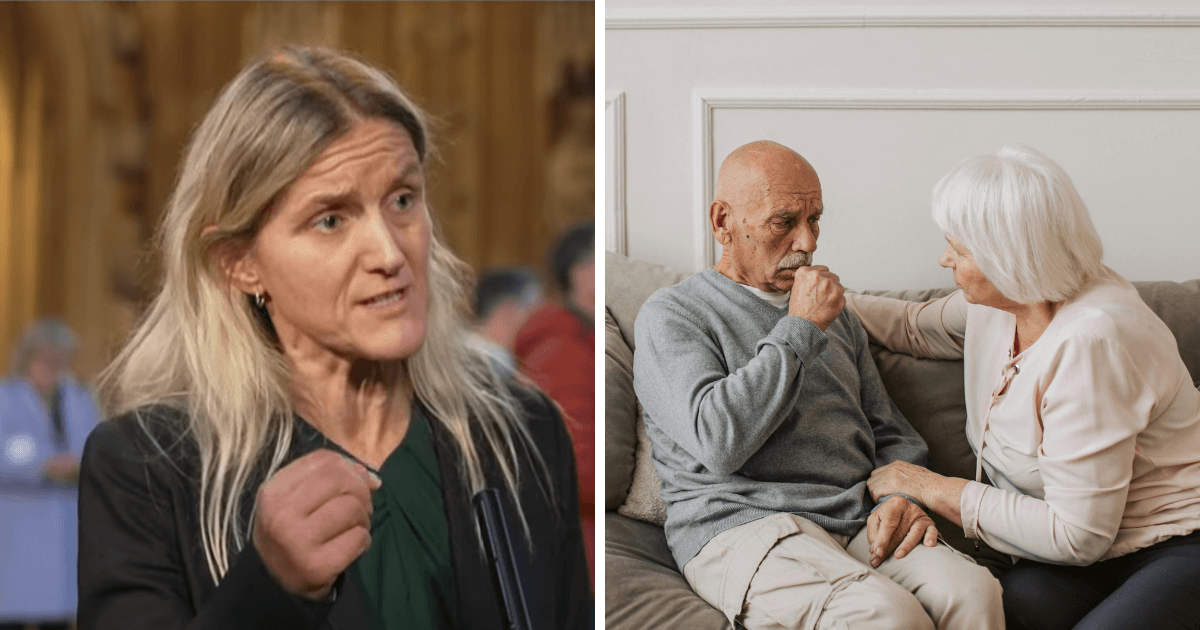Lawyers have warned that under the assisted suicide Bill currently being debated, once a ruling has been made that a person meets the criteria for assisted suicide, it cannot be challenged by relatives.
As Kim Leadbeater’s Terminally Ill Adults (End of Life) Bill proceeds through its next stage, legal academics have been highlighting an asymmetry in the proposed legislation between the patient’s right to appeal a decision if an assisted suicide is not approved, and the fact that there is no corresponding right of appeal for a family member to challenge an application that has already been approved.
Dr Yuan Yi Zhu, an Assistant Professor of International Relations and International Law at Leiden University, said “Firstly, if the High Court approves the application, there’s no right to appeal from that decision”.
“There is a right of appeal if an application is refused, but there’s no appeal if the application is successful. So, already here you have a very troubling asymmetry”.
He added “Kim Leadbeater says that anorexia and bulimia would not be qualifying conditions under her legislation. However, it is a fact that with eating disorders, especially anorexia, if you stop eating, you can bring your life expectancy to six months or less”.
Dr Zhu explained that the judge’s powers are limited because a judge is under no obligation to hear from people, although he/she “may” choose to do so.
Former Government Minister Ann Widdecombe also identified this as one of the Bill’s “horrors”, saying “Appeals work only one way: one can appeal against a refusal but a relative, concerned about suspected coercion, for example, cannot appeal against an affirmative decision and coroners cannot investigate”.
Assisted suicide Bill a “profoundly unsatisfactory scheme”
The lack of family involvement or input in the assisted suicide Bill was a subject of intense controversy even before the Bill was debated. In November, former head of the High Court’s family division, Sir James Munby accused Leadbeater of promoting a “profoundly unsatisfactory scheme” open to abuse. He was particularly concerned the Bill appears to permit judges to decide if a patient meets the criteria for an assisted suicide “without hearing from the patient and with no input of any sort from the patient’s partner or relatives”.
“In short, an application could be dealt with: In accordance with a wholly inadequate procedure, and without the public knowing anything about it – not even the name of the judge”.
“The fact is that judges are kept up to the mark by two things: having to comply with proper procedure and being exposed to the public gaze” he added.
Munby said his concerns were made worse by the fact that the Bill does not allow appeals in cases where assisted suicide has been approved, which he said was an “extraordinary” omission. This, he said, could leave a patient’s loved ones unable to challenge a decision for assisted suicide once made.
Ongoing and unresolved legal issues
Dr Yuan Yi Zhu and Sir James Munby’s concerns, shared before the debate, are just part of a number of ongoing and unresolved legal issues around the role of judges.
During the debate, Mother of the House Diane Abbott warned that the judge’s role could be little more than “a rubber stamp”, saying “Is the judge supposed to second-guess doctors? Will the judge make a decision on the basis of paperwork? Or will there be a hearing in open court? Where will be the capacity in the criminal justice system to deal with all this? Far from being a genuine safeguard, the involvement of a judge could just be a rubber stamp”.
Liberal Democrat MP for Wimbledon Paul Kohler echoed these concerns, describing the envisaged role of a judge as “a tick box exercise”. Kohler had originally planned to vote for the Bill, but changed his mind and voted against it. One of the reasons he gave was his concerns around the Bill’s “legal safeguards”.
“As a lawyer I had always been concerned regarding the legal safeguards in the Bill and nothing I heard during the debate assuaged my fears, where Kim had to return to the chamber to correct the record after incorrectly giving the impression the judiciary had formally endorsed her Bill”, Kohler wrote in a statement to his constituents after the debate.
“The procedure in the Bill seems to envisage an inquisitorial approach quite alien to the Common Law and not something in which our judges are trained. The Court’s approval is consequently likely to become a tick box exercise where no High Court judge will have the expertise to second guess doctors’ judgements which will largely have to be taken at face value”.
Spokesperson for Right To Life UK, Catherine Robinson, said “It appears that under this dangerous and unworkable Bill, concerned relatives will not have any clear legal recourse if they suspect a loved one has been coerced into opting for assisted suicide”.
“Moreover, the role of judges and the courts, which was hailed as one of the Bill’s key safeguards, is being exposed by legal experts as little more than a box-ticking exercise”.
“MPs must oppose this Bill at Third Reading”.












